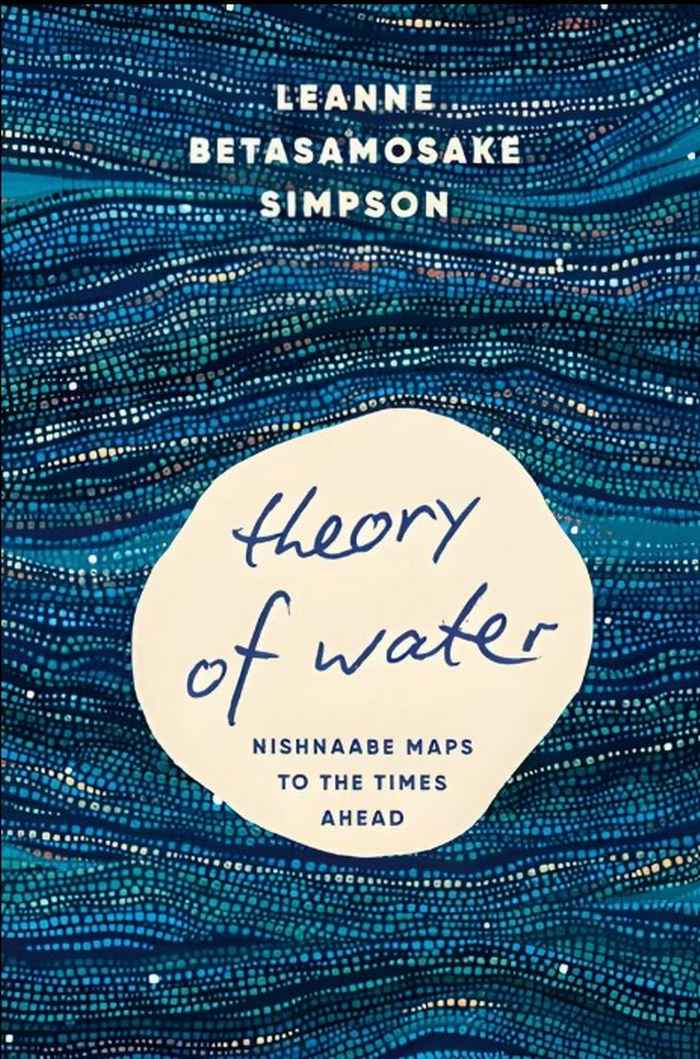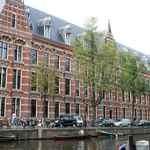RPA Decolonial Futures Workshop & Roundtable | Leanne Betasamosake Simpson
- Date
- 5 December 2025
- Time
- 15:30 -17:30
- Location
- Bushuis/Oost-Indisch Huis
- Room
- Humanities Labs | F0.01

Following her keynote at the RPA Decolonial Futures Annual Lecture 2025, in this roundtable and workshop, Leanne Betasamosake Simpson will engage in conversation on her recent book Theory of Water (2025) with UvA scholars John Taukave, Nawal Mustafa, and Said Ortega Rosales and workshop participants. Theory of Water is a genre-bending exploration of that most elemental force- water- through Indigenous storytelling, personal memory, and the work of influential artists and writers. For many years, Simpson took solace in skiing- in all kinds of weather, on all kinds of snow across all kinds of terrain, often following the trail beside a beloved creek near her home. Recently, as she skied on this path against the backdrop of uncertainty, environmental devastation, rising authoritarianism and ongoing social injustice, her mind turned to the water in the creek and an elemental question: What might it mean to truly listen to water? To know water? To exist with and alongside water? So began a quest to understand her people's historical, cultural, and ongoing interactions with water in all its forms (ice, snow, rain, perspiration, breath). Pulling together these threads, Simpson began to see how a "Theory of Water" might suggest a radical rethinking of relationships between beings and forces in the world today. In this inventive work, Simpson draws on Nishnaabeg origin stories while artfully weaving the work of influential writers and artists alongside her personal memories and experience- and in doing so, reimagines water as a catalyst for radical transformation, capable of birthing a new world. Theory of Water is a resonant exploration of an intricate, multi-layered relationship with the most abundant element on our planet- one that, as Simpson eloquently shows, is shaping our present even as it demands a radical rethinking of how we might achieve a just future.
To apply for the workshop:
The workshop is designed for BA, MA and students and PhD candidates. To prepare for the workshop, students will be assigned reading from Theory of Water (2025) and be asked to engage with Leanne and round table participants.
Max number of participants: 25
Duration: 2 hours.
ECTS: 1 (submit a 300 word report on the discussion).
Requirements: prepare the assigned readings.
To apply as a participant: please send an email with your name, contact, and study programme/ departmental affiliation by the 28th of November 2025 to Noelle Richardson at decolonialfutures@uva.nl
Information on the participants:
Dr. Nawal Mustafa is Assistant Professor in Black Studies, Critical Race Studies, and Indigenous Studies within the Cultural Studies department at the University of Amsterdam. Her work explores the intersections of law, colonialism, slavery, and the regulation of intimacy. mr. Dr. Mustafa completed her PhD at Vrije Universiteit Amsterdam, focusing on migration and the historical regulation of interracialised intimacy in the UK following World War II. After her PhD, she worked as a postdoctoral researcher examining the legal history of slavery within the Dutch empire. Next to her academic roles, mr. dr. Mustafa also serves as a strategic legal advisor at PILP, a human rights law firm and NGO based in Amsterdam and has received a Black Achievement Award for her contributions to education and science (2025).
Saïd Rosales (they/them) works as a PhD in the Synthetic Organic Chemistry department at the Universiteit van Amsterdam (UvA). Their chemical research focuses on organic liquids capable of storing hydrogen (in the context of the so-called “Energy Transition”). In an attempt to cope with the contradictions of hegemonic technofix paradigms and their (neo)colonial habits, Saïd’s practice outside of the lab draws tools from other materialisms and undisciplined explorations to reckon with the complexity and entanglements of chemical research amidst planetary crises. Imagining a horizon of energy autonomy and self-determination, they currently pursue an (al)chemical spell to turn hydrogen into a jaguar.
John Taukave hails from the villages of Motusa, Ituti’u and Pephaua, Malha’a on the island of Rotuma in Fiji. His work focuses on promoting Indigenous epistemology, reconnecting oceanic identities and climate advocacy in the arts. Interweaving both the arts and academic scholarship together has been a key tenet of his work. He has also provided technical and research support on climate policies and negotiations for the Micronesian Center for Sustainable Transport (MCST) and Pacific (6PAC+) delegations at the International Maritime Organization (IMO). John has also been a performing artist with Rako Pasefika, a Rotuman and Pacific Performing Arts company based in Fiji for 15 years and has extensive experience in Oceanic and Rotuman Performance. He continues to advocate for cultural, traditional and indigenous preservation and conservation of Pacific heritage, stories and identity through the Performing arts with applied experiences in cultural research and academia. John is currently pursuing his Doctoral studies at the University of Amsterdam.
